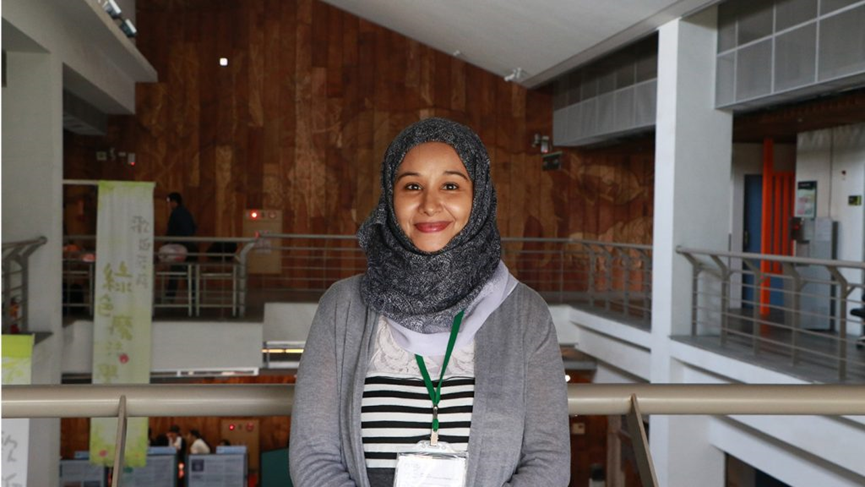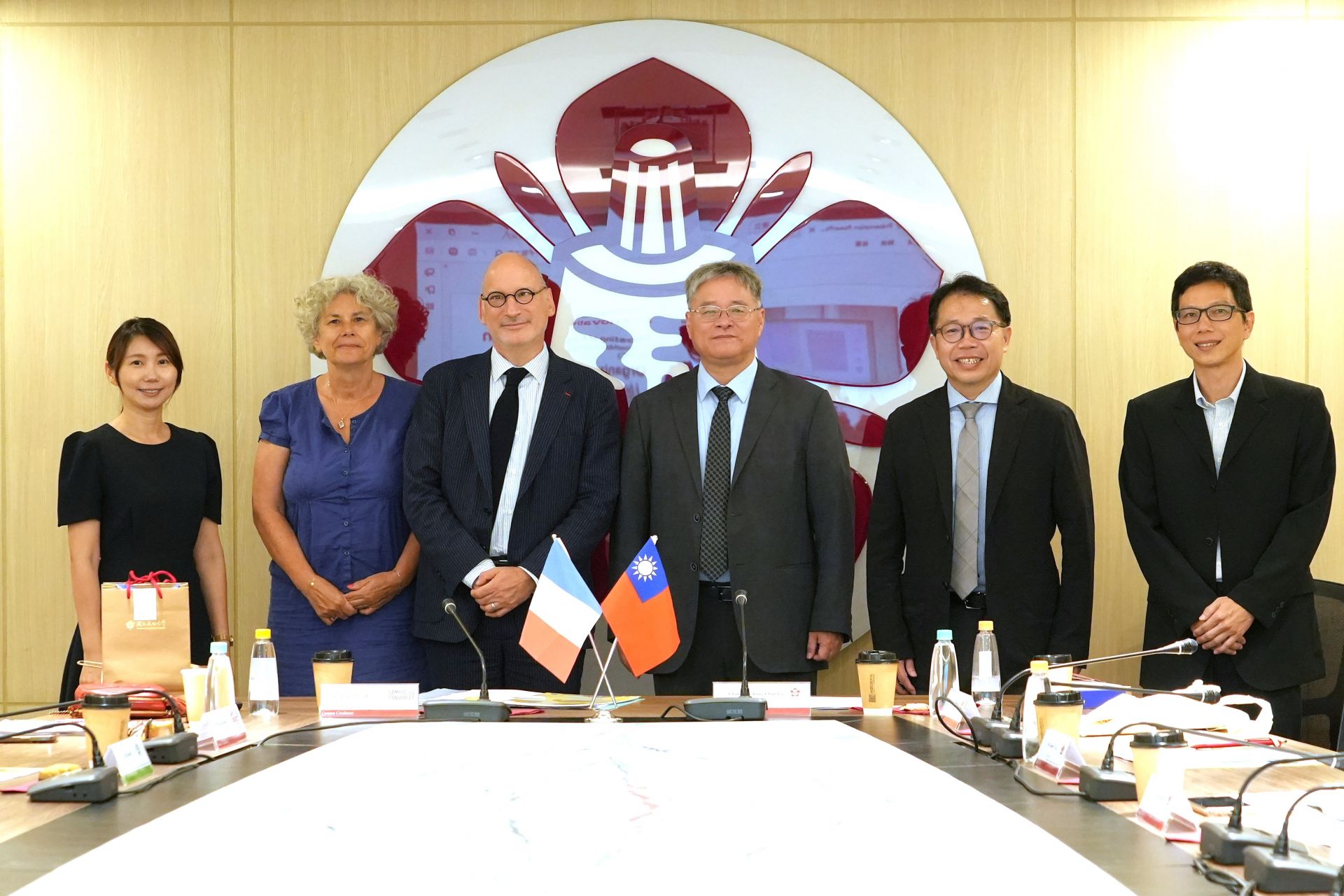SDG16
2021 NCKU Humans Rights Exhibition: Crossing the Boundary with Missionaries, Tibetans and Hong Kong people in Taiwan
2021 NCKU Humans Rights Exhibition: Crossing the Boundary with Missionaries, Tibetans and Hong Kong people in Taiwan
The human rights photography exhibition “Lillian Dickson’s Starry Nights - The trek of the Tibetan Barley - Living to become Hong Kong?” held by NCKU has started, taking place in the basement floor (B1)of NCKU Library. There will be a “Living to be Hong Kong?” calligraphy workshop on the 20th of November, as well as a seminar featuring Priest 潘稀祺.
NCKU Research Center for Humanities and Social Sciences (NCKU CHASS) and the National Humans Rights Museum co-organized the “Crossing the boundary: 2021 Tainan International Human Rights Festival”, including topics of human rights activities such as: “Lillian Dickson’s Starry Nights”, “The trek of the Tibetan Barley”, “Living to become Hong Kong?”. These exhibitions focus on a missionary’s dedication beyond national boundaries, journeys of Tibetan diasporas, and the harsh realities overseas Hong Kong people face. As indicated by the NCKU CHASS, the three exhibitions all include the same value - “crossing the boundary”. The complexion of borders, mobility, and moving beyond is intertwined with national boundaries, communities, and people. The exhibition is on from now on to the 15th of December daily from 10am to 5pm.
The opening ceremony of “Crossing the boundary” took place in the B1 of NCKU Library on the 15th of November, with three curators narrating in person. The three main topics are demonstrated through photography and literature.
“Lillian Dickson’s Starry Nights” focuses on medical equality, with the Director of the Arts Center and NCKU Taiwanese Literature professor Nan-fang Liu curating. This exhibition includes photos, manuscripts, letters, and documentaries, reliving Lillian Dickson’s actions of “crossing the border” deep into Taiwan.
According to Professor Liu, “Lillian Dickson’s Starry Nights” exhibits medical practices of missionaries such as Lillian Dickson and James Ira Dickson since the 1950s, including medical services for Hualien and Taitung, aboriginal tribes, and nursing homes, etc.
“The trek of the Tibetan Barley” was curated by documentary photographer Tsungyi Chiu, along with works by exiled poet 吉賽.格勒尼瑪. Ever since the Dalai Lama was forced to leave Tibet 60 years ago, more than 100 thousand Tibetans have left their home and have become stateless. In addition to photography from voyagers, this exhibition also displays Tibetan poetry translated into Chinese.
According to Tsungyi Chiu, stateless people are deprived of legal protection in the global society, and therefore could not “cross the border” legally. “Because India doesn't have Refugee Law, they could not become Indian citizens, even under international human rights protection. Unless they illegally cross borders - again - to western countries that provide political asylum, they cannot get passports to return to their homes. In this one-way journey, the seeds of the tibetan barleys have grown in severe conditions, in foreign lands. This exhibition hopes to explore if they have picked up the ability to grow outside of their motherland, and become new species of tibetan barleys?”
“Living to become Hong Kong?” was curated by Wini Huang, founder of 653 studio (calligraphy) and Yim Wai Sze, an NCKU Taiwanese Literature master student who is from Hong Kong. In 2021, the Chinese government announced the implementation of “full governance” in Hong Kong, gradually conducting “ideological censorship” through rule of law, press freedom, culture and education. In response to Hong Kong falling apart, the immigration wave of the 1990s is reappearing.
According to Wini Huang, this workshop-combined-exhibit is an act of communication, initiating dialogues between people from Taiwan and Hong Kong. Yim Wai Sze also mentions, “in midst of the drastic changes in Hong Kong, how do the people of Hong Kong view their homeland? Moreover, the bond between Taiwan and Hong Kong makes people think that their culture is similar, but is that really the case? We hope to initiate discussions through the exhibition, and reduce misunderstanding under the immigration wave.”
The human rights photography exhibition “Lillian Dickson’s Starry Nights - The trek of the Tibetan Barley - Living to become Hong Kong?” held by NCKU has started, taking place in the basement floor (B1)of NCKU Library. There will be a “Living to be Hong Kong?” calligraphy workshop on the 20th of November, as well as a seminar featuring Priest 潘稀祺.
NCKU Research Center for Humanities and Social Sciences (NCKU CHASS) and the National Humans Rights Museum co-organized the “Crossing the boundary: 2021 Tainan International Human Rights Festival”, including topics of human rights activities such as: “Lillian Dickson’s Starry Nights”, “The trek of the Tibetan Barley”, “Living to become Hong Kong?”. These exhibitions focus on a missionary’s dedication beyond national boundaries, journeys of Tibetan diasporas, and the harsh realities overseas Hong Kong people face. As indicated by the NCKU CHASS, the three exhibitions all include the same value - “crossing the boundary”. The complexion of borders, mobility, and moving beyond is intertwined with national boundaries, communities, and people. The exhibition is on from now on to the 15th of December daily from 10am to 5pm.
The opening ceremony of “Crossing the boundary” took place in the B1 of NCKU Library on the 15th of November, with three curators narrating in person. The three main topics are demonstrated through photography and literature.
“Lillian Dickson’s Starry Nights” focuses on medical equality, with the Director of the Arts Center and NCKU Taiwanese Literature professor Nan-fang Liu curating. This exhibition includes photos, manuscripts, letters, and documentaries, reliving Lillian Dickson’s actions of “crossing the border” deep into Taiwan.
According to Professor Liu, “Lillian Dickson’s Starry Nights” exhibits medical practices of missionaries such as Lillian Dickson and James Ira Dickson since the 1950s, including medical services for Hualien and Taitung, aboriginal tribes, and nursing homes, etc.
“The trek of the Tibetan Barley” was curated by documentary photographer Tsungyi Chiu, along with works by exiled poet 吉賽.格勒尼瑪. Ever since the Dalai Lama was forced to leave Tibet 60 years ago, more than 100 thousand Tibetans have left their home and have become stateless. In addition to photography from voyagers, this exhibition also displays Tibetan poetry translated into Chinese.
According to Tsungyi Chiu, stateless people are deprived of legal protection in the global society, and therefore could not “cross the border” legally. “Because India doesn't have Refugee Law, they could not become Indian citizens, even under international human rights protection. Unless they illegally cross borders - again - to western countries that provide political asylum, they cannot get passports to return to their homes. In this one-way journey, the seeds of the tibetan barleys have grown in severe conditions, in foreign lands. This exhibition hopes to explore if they have picked up the ability to grow outside of their motherland, and become new species of tibetan barleys?”
“Living to become Hong Kong?” was curated by Wini Huang, founder of 653 studio (calligraphy) and Yim Wai Sze, an NCKU Taiwanese Literature master student who is from Hong Kong. In 2021, the Chinese government announced the implementation of “full governance” in Hong Kong, gradually conducting “ideological censorship” through rule of law, press freedom, culture and education. In response to Hong Kong falling apart, the immigration wave of the 1990s is reappearing.
According to Wini Huang, this workshop-combined-exhibit is an act of communication, initiating dialogues between people from Taiwan and Hong Kong. Yim Wai Sze also mentions, “in midst of the drastic changes in Hong Kong, how do the people of Hong Kong view their homeland? Moreover, the bond between Taiwan and Hong Kong makes people think that their culture is similar, but is that really the case? We hope to initiate discussions through the exhibition, and reduce misunderstanding under the immigration wave.”
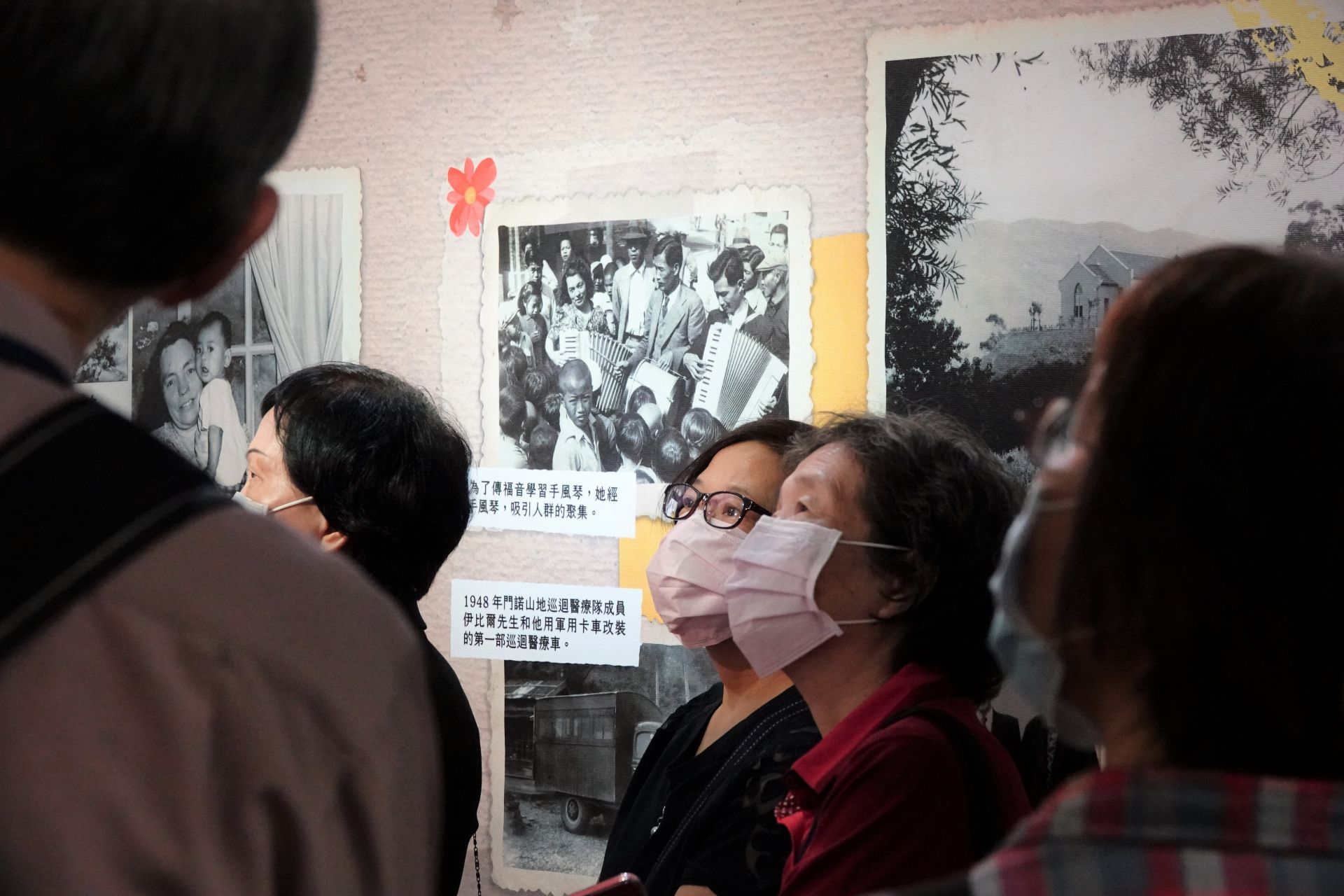
2021 NCKU Humans Rights Exhibition
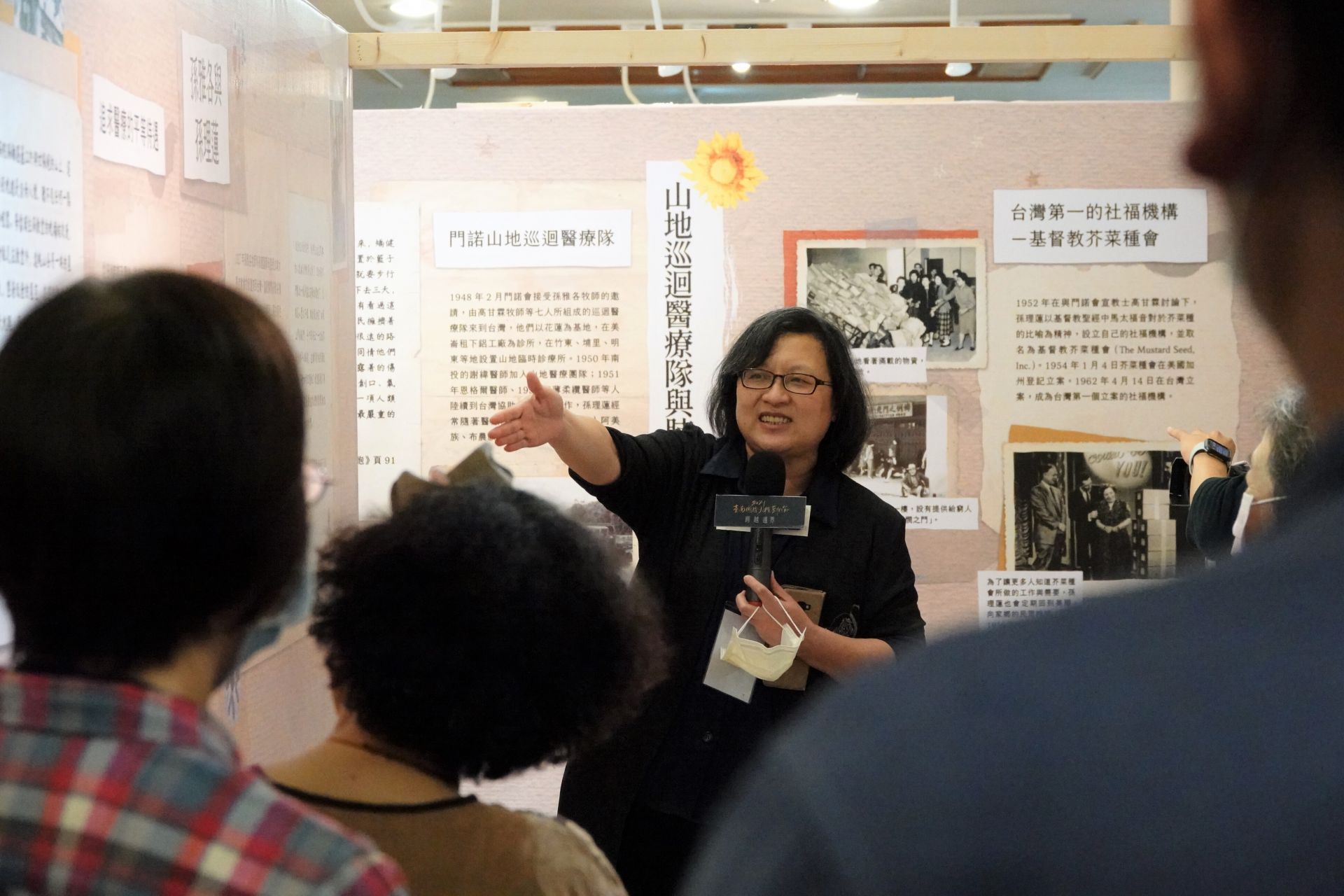
“Lillian Dickson’s Starry Nights” focuses on medical equality, with the Director of the Arts Center and NCKU Taiwanese Literature professor Nan-fang Liu curating
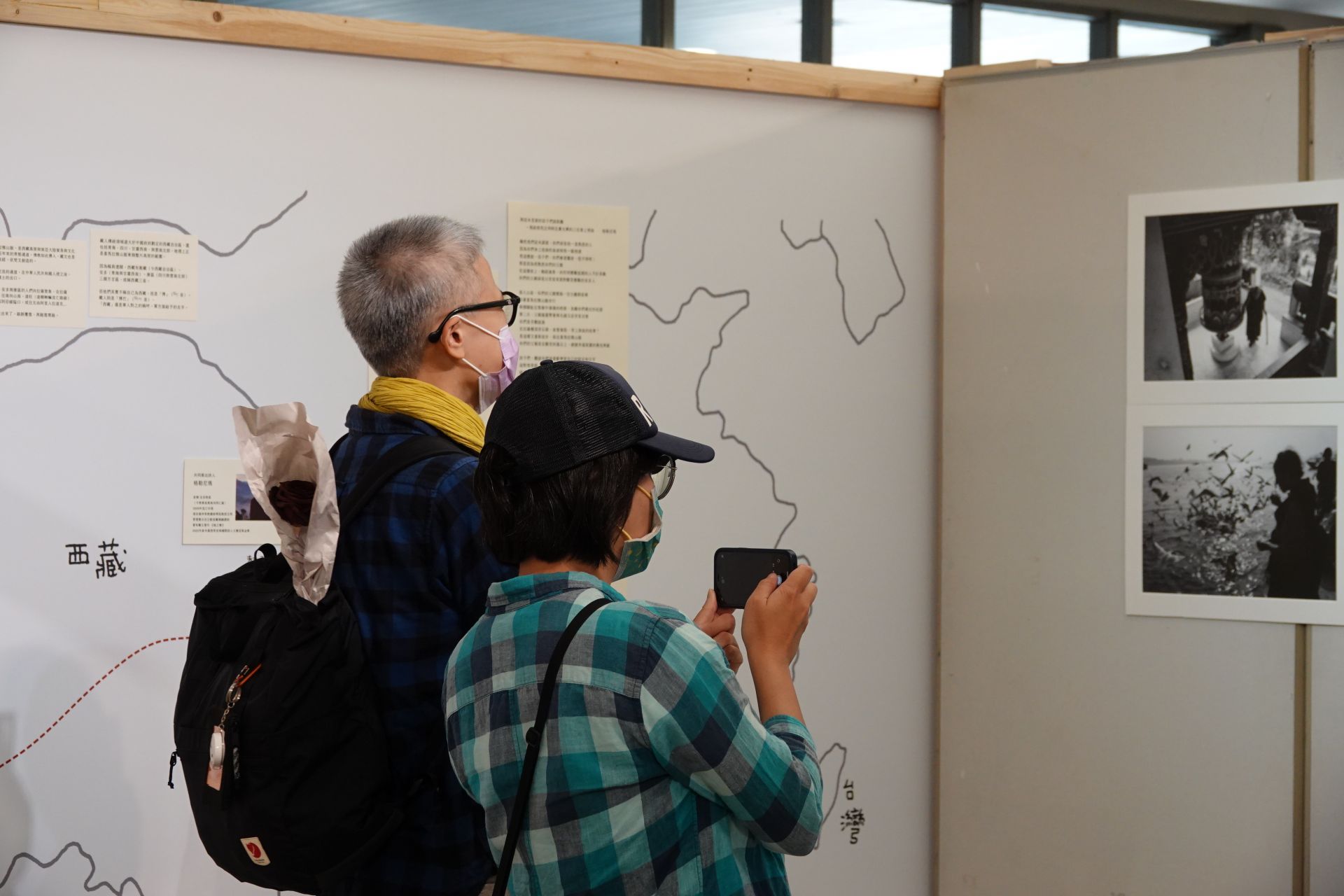
”The trek of the Tibetan Barley” was curated by documentary photographer Tsungyi Chiu
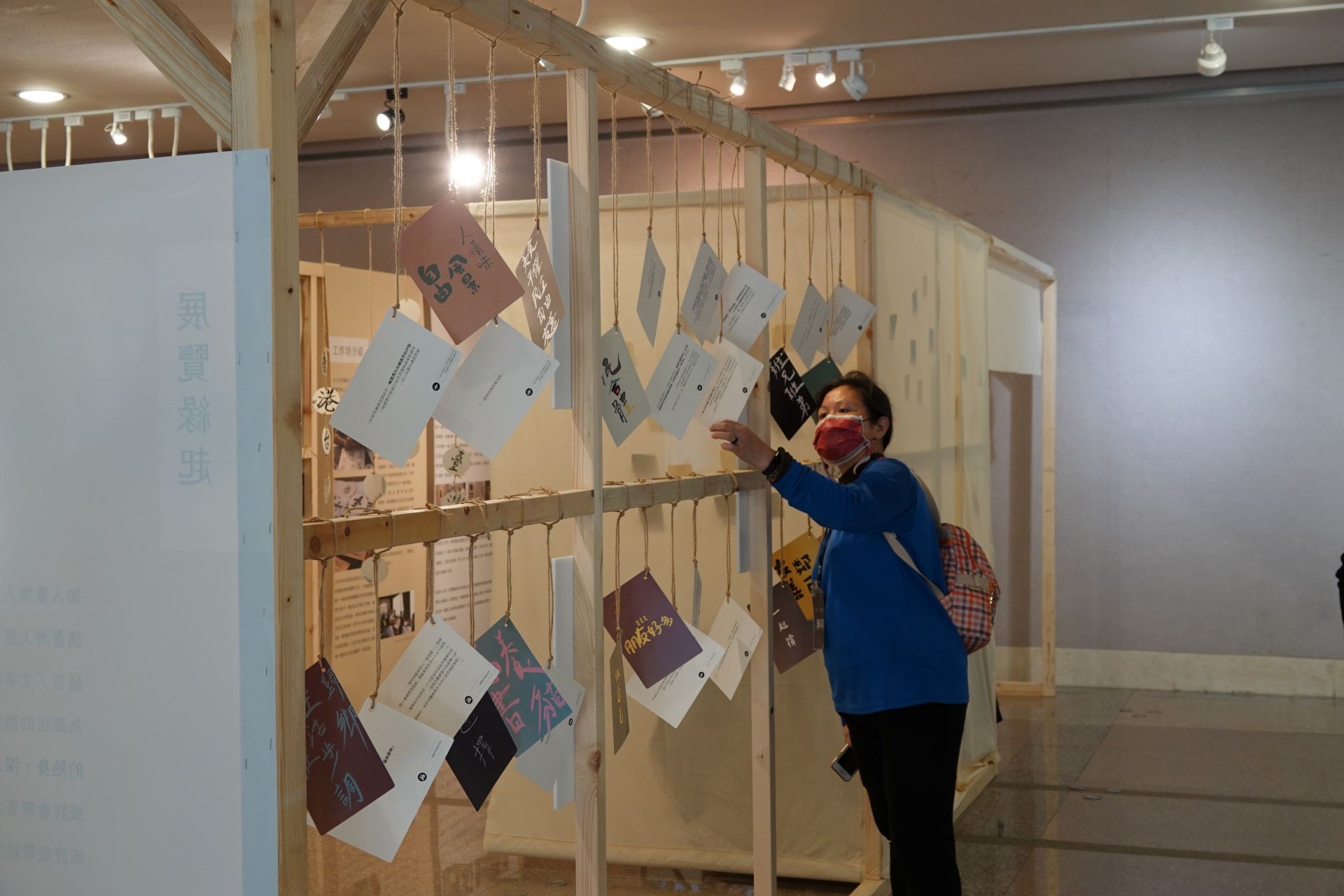
“Living to become Hong Kong?” focuses on the people of Hong Kong, who are losing their legacy




